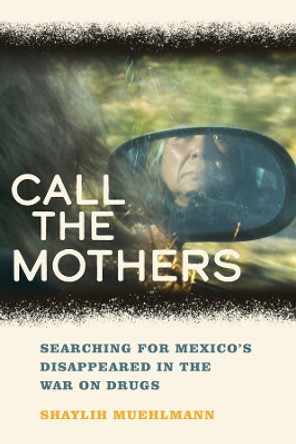Description
Where the River Ends is a moving look at how the Cucapa people have experienced and responded to the diversion of the Colorado River and the Mexican state's attempts to regulate the environmental crisis that followed.
About the Author
Shaylih Muehlmann is Assistant Professor of Anthropology and Canada Research Chair in Language, Culture and the Environment at the University of British Columbia.
Reviews
"A vivid portrait of the double-bind that traps growing numbers of native people who are denied ancestral rights and legitimacy by outsiders' criteria for ethnic difference. In stories laced with humor and insight, this highly readable ethnography shows how identity coalesces in unexpected places as the Cucapa cope with narcotrafficking, celebrate women's leadership in contrast to Mexican machismo, and cultivate expert vocabularies of indigenous swear words."-Beth A. Conklin, Department of Anthropology, Vanderbilt University
"Shaylih Muehlmann's richly peopled, intimate ethnography explores matters of identity and recognition, structure and agency, resistance and complicity as they emerge through the events, predicaments, and dilemmas of daily life. The characters at the center of her account are neither victims nor heroes, but reflective and often flawed subjects, engaged in struggles over resources, meanings, and the pragmatic business of survival. Where the River Ends leads us into their world. It is a lively read. Highly recommended."-Tania Murray Li, author of The Will to Improve: Governmentality, Development, and the Practice of Politics
"Muehlmann offers a thought-provoking, well-written, and important ethnography. This book is recommended particularly for upper-level undergraduate and graduate students, and for the interested public. It is supplemented with helpful and clear figures and maps." -- Emma S. Norman * Environmental History *
"This well-researched and illustrated depiction of global forces at work in particular places (with excellent maps and images), is at the crux of the work as 'political' but it is not categorically aligned with a particular ideology. This is positioned ethnography-the writing is 'witness' to powerful process (63) with a focus on everyday conditions. . . . This methodological expansiveness is paired with succinct and relevant reviews of conceptual literature and rich ethnography often through vignettes. Being also a slim volume, the book would be a valuableaddition to upper level undergraduate and graduate coursework in environmental anthropology, indigenous studies, and methods courses." -- Sally Babidge * Anthropological Forum *
"An eloquently argued and ethnographically grounded critique of the general understanding of tradition as fixed heritage, and of indigeneity as inhering in unchanged language, livelihoods, and practices." -- Franz Krause * Journal of the Royal Anthropological Institute *
"I believe that the book will work well in the classroom, not only for its vivid stories but because of the way that Muehlmann brings the scholarly literature to bear in every argument, showing which ideas she brings along and where and how she has to modify and develop ideas. In this way, the book can be used to teach about fieldwork and analytic methods as well as provide a strong lesson in 'how environmental conflicts are never just about "the environment"' (p. 172)."
-- Stephanie C. Kane * PoLAR *"This is a timely and important book that will interest indigenous activists, scholars,and policymakers concerned with preserving the ecological health of the Colorado River basin. Muehlmann's work also provides a powerful comparative tool for those interested in understanding the ways that native communities can and should play a prominent role in preserving global ecological borderlands like the lower Colorado delta." -- Natale Zappia * Hispanic American Historical Review *
"[Muehlmann's] rich and nuanced ethnography of a Cucapa village gives an intimate portrait of this community. The reader gets to know her interlocutors as real, reflexive, active, and flawed people struggling to survive in abject conditions." -- Randall H. McGuire * American Ethnologist *
Book Information
ISBN 9780822354451
Author Shaylih Muehlmann
Format Paperback
Page Count 240
Imprint Duke University Press
Publisher Duke University Press
Weight(grams) 340g







